Smartphones & Tablets | May 27, 2024
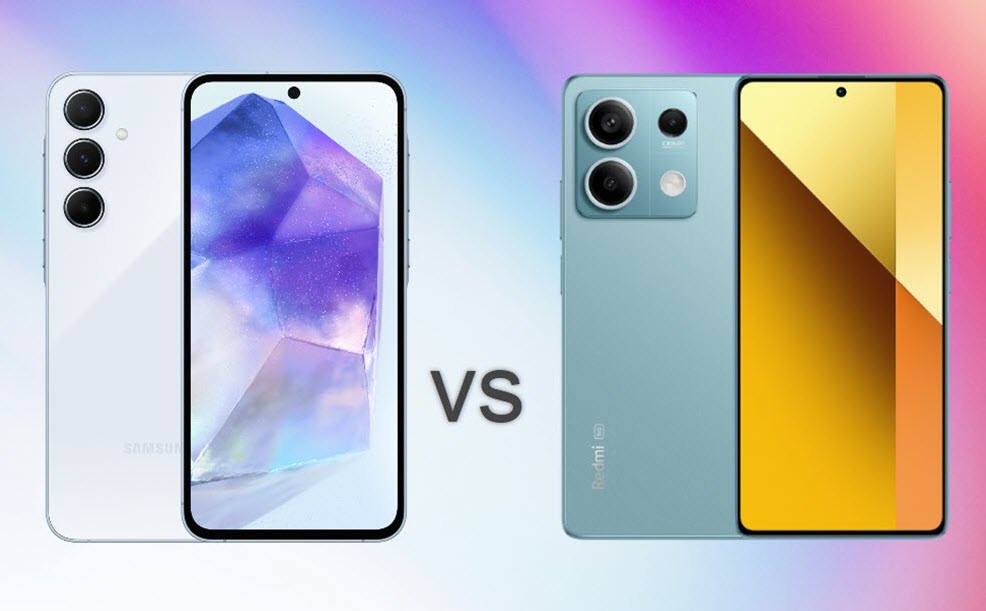
We analyze the main differences between Galaxy A55 vs Redmi Note 13 5G.
| Samsung Galaxy A55 | Redmi Note 13 5G | |
| Screen | 6.6 inches with Super AMOLED technology, Corning Gorilla Glass 5 protection, 20:9 format, Full HD+ resolution and 120 Hz refresh rate with maximum brightness of 1,000 nits | 6.67 inches of AMOLED technology, 20:9 format, FullHD+ resolution of 2,400 x 1,080 pixels, 120 Hz adaptive refresh rate, 240 Hz touch sampling rate, 1,000 nits maximum brightness and Corning Gorilla Glass 5 protection |
| Main Camera | – 50 megapixel main sensor and f/1.8 focal aperture with optical image stabilization – Secondary sensor with 12 megapixel wide-angle lens and f/2.2 focal aperture – Tertiary sensor with 5 megapixel macro lens and f/2.4 focal aperture | – 108 megapixel main sensor with f/1.7 focal aperture – Secondary sensor with 8 megapixel wide-angle lens with f/2.2 aperture – 2 megapixel tertiary macro sensor with f/2.4 aperture |
| Selfie Camera | 32 megapixel main sensor with f/2.2 focal aperture | 16 megapixel main sensor with f/2.4 focal aperture |
| Internal memory | 128 and 256 GB type | 128 or 256 GB of UFS 2.2 type |
| Extension | Through micro SD cards up to 1 TB | Expandable via microSD card up to 1TB |
| Processor and RAM memory | Samsung Exynos 1480 8GB RAM | – Mediatek Dimensity 6080 6 nanometers and eight cores at 2.4 GHz max. – 6 or 8 GB of LPDDR4 type RAM |
| Battery | 5,000 mAh with 25W fast charging (charger not included) | 5,000 mAh with support for 33W fast wired charging (charger included in the box) |
| OS | Android 14 under Samsung One UI 6 | Android 13 under MIUI 14 |
| Connections | 4G LTE, 5G SA and NSA, dual-band WiFi 802.11 a/b/g/n/ac/6, Bluetooth 5.3, GPS + GLONASS, NFC and USB type C | 5G, 4G LTE, dual-band Wi-Fi 802.11 a/b/g/n/ac, Bluetooth 5.3, GPS with A-GPS and GLONASS, NFC for contactless mobile payments, 3.5 mm headphone jack and USB type C |
| SIM | Dual nano SIM | Dual nano SIM + eSIM |
| Design | Polycarbonate and glass finish Colors: black, white, blue and lavender IP67 water and dust protection | Colors: black, blue and white |
| Dimensions and weight | 161.1 x 77.4 x 8.2 millimeters and 213 grams | 161.1 x 74.9 x 7.6 millimeters and 174.5 grams |
| Featured Features | Fingerprint sensor under the screen, NFC for mobile payments, 25W fast charging, face unlock via software, IP67 water and dust protection, stereo sound with Dolby Atmos certification… | Side-mounted optical fingerprint sensor, facial recognition, stereo speakers with Dolby Atmos, infrared sensor for controlling external devices, and IP54 water and dust resistance |
| Release date | Starting April 8 | Available |
| Price | From 480 euros | From 250 euros |
The prices indicated in the article may vary over time, so at tuexperto.com we limit ourselves to analyzing the differences as of the date of publication. Additionally, specifications may vary depending on the market.
If you are considering buying the Galaxy A55, you might be analyzing how this new Samsung offering compares to some of the popular competing phones.
We have already shared our analyses comparing the A55 vs Redmi Note 13 Pro Plus and the A55 vs Redmi Note 13 Pro. Now, we will examine the main differences between the Samsung Galaxy A55 and the Redmi Note 15 5G to determine which one is better suited to your needs.
We start this comparison between the Galaxy A55 and the Redmi Note 13 5G by examining the screen features and the most prominent design points.
The Samsung Galaxy A55 inherited many premium features. Of course, design is one of them, featuring a mix of details that convey the feel of a high-end mobile.
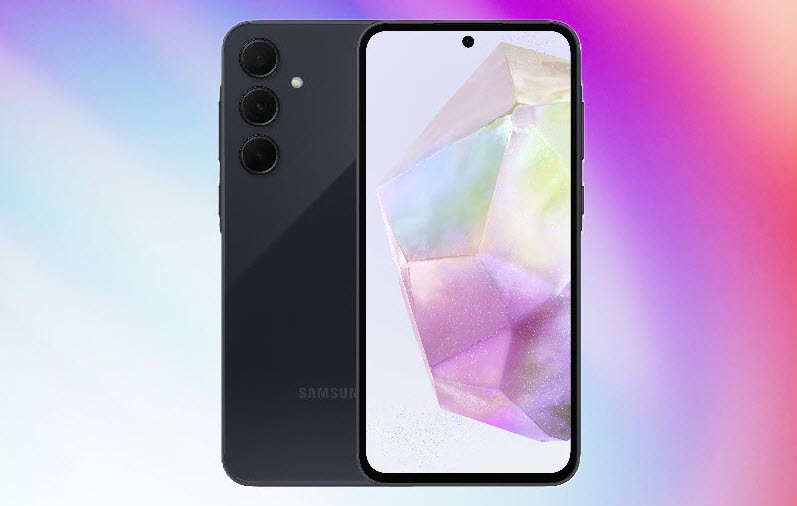
For instance, this model has a glass back, aluminum sides, and the “Key Island”—a small edge in the button area that integrates seamlessly with the design. If you’re upgrading from the Samsung Galaxy A54, you’ll notice it’s a bit heavier, but it remains a comfortable phone to hold.
As for the display, the A55 boasts a 6.6-inch FHD+ Super AMOLED panel with a 120 Hz refresh rate and a maximum brightness of 1000 nits.
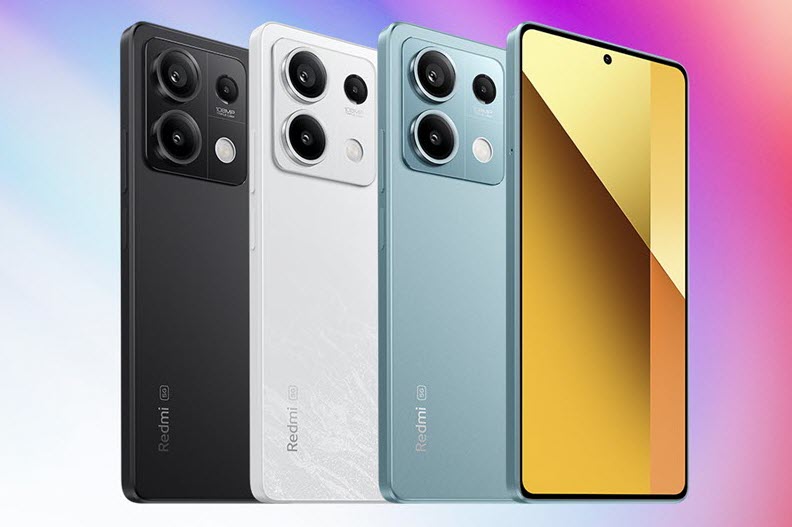
Moving to the Redmi Note 13 5G, it features ultra-thin bezels that give it an elegant and compact style, as seen in the image above. It is significantly lighter than the Galaxy A55 and feels very good to the touch.
Regarding the screen, it shares several characteristics with the A55, including a 6.67-inch AMOLED FHD+ panel with a 120 Hz refresh rate and 1000 nits of brightness.
The Samsung Galaxy A55 debuts with the Samsung Exynos 1480 processor, manufactured using a 4nm process with 6 cores at 2.75 GHz and 6 cores at 2 GHz, and is configured with 8GB of RAM with either 128 or 256 GB of internal storage.
Of course, the processor is superior to previous generations, with significant improvements in performance and power. Other notable features include stereo speakers, NFC, and IP67 protection against dust and water. Don’t expect a headphone jack on this model from the A series, as Samsung has long removed this feature.
On the other hand, the Redmi Note 13 5G is powered by a MediaTek Dimensity 6080 processor built on a 6 nm process with 8 cores up to 2.4 GHz, available in two versions: 6 GB + 128 GB, and 8 GB + 256 GB of RAM and internal storage.
This configuration will not cause you problems even when you test it with high-demand graphic games. This model does include a headphone jack, though it lacks dual stereo speakers and only offers IP54 protection.
One of the points you might be interested in this comparison between the Redmi Note 13 5G and the Galaxy A55 is the battery life each model can offer.
The good news is that both feature a 5000 mAh battery, which is more than enough to provide over a day’s worth of autonomy without issues. Of course, this will depend on the settings you’ve configured on the mobile and your usage habits.
As for fast charging, the Samsung Galaxy A55 continues with the 25W of previous generations, while the Redmi Note 13 5G offers 33W fast charging (charger included).
Moving to the photographic section, the Samsung Galaxy A55 features a primary sensor of 50 megapixels with Optical Image Stabilization (OIS) and an aperture of f/1.8, a 12-megapixel wide-angle lens with f/2.2, and a 5-megapixel macro lens with f/2.4. Regarding the front camera, it includes a 32-megapixel sensor with f/2.2.
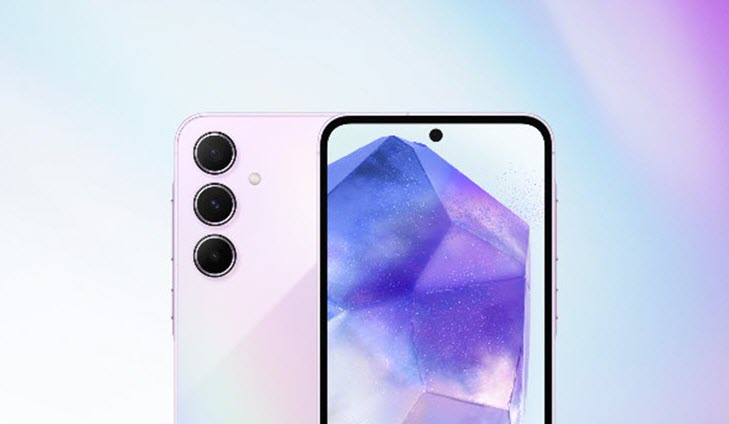
The Redmi Note 13 5G also features a triple camera setup, but with a different configuration. It has a main sensor of 108 megapixels with an f/1.7 aperture, an 8-megapixel ultra-wide-angle lens with f/2.2, and a 2-megapixel macro lens with f/2.4. The front camera sensor is 16 megapixels with f/2.4.
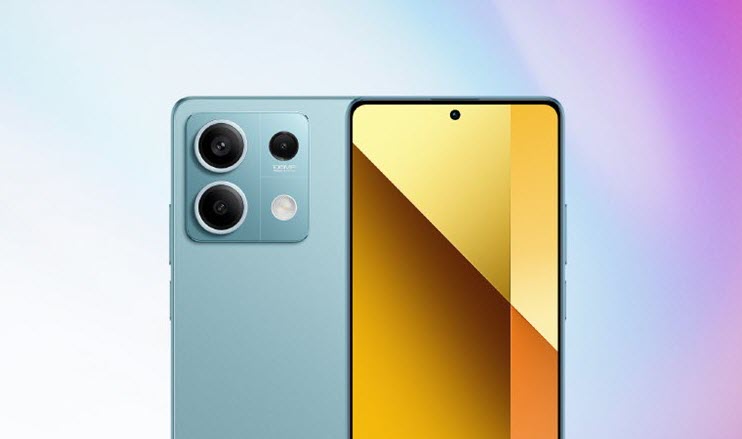
It has been observed that with this model, you can achieve good photographs without too much fuss, although in low-light or night shots you may need to utilize camera functions to achieve better results.
Both the Samsung Galaxy A55 and the Redmi Note 13 5G offer interesting propositions, as they combine premium features to cover almost all aspects.
They boast excellent screens, large batteries, comprehensive photographic capabilities, and solid processing power. Of course, there are differences.
Samsung’s Exynos 1480 promises power and performance aligned with a mostly premium proposal in most of its aspects. Additionally, it includes some features that might not go unnoticed, which are not present in the Redmi, such as IP67 protection and stereo audio.
The photographic capabilities of the Redmi Note 13 5G with its 108-megapixel main sensor have proven to work well in most scenarios, and it remains to be seen how the Galaxy A55’s camera proposal responds.
However, the price may be the decisive factor for your decision. The Redmi Note 13 5G is priced at 250 euros for the 6GB + 128GB version, while the Samsung Galaxy A55 is around 480 euros. This significant price difference might lead you to opt for the Redmi or look for similar alternatives in mobiles that do not exceed 300 euros.